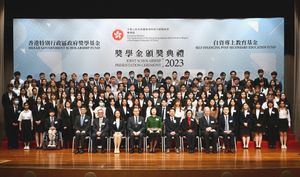Recent US Senate hearings have spotlighted intense political confrontations, as nominees for key national security positions faced rigorous questioning from lawmakers. On January 31, 2025, Kash Patel, nominated for FBI Director, Tulsi Gabbard, vying for Director of National Intelligence, and Robert F. Kennedy Jr. clashed with Senators over controversial policies and past decisions, bringing the contentious nature of current political discourse to the forefront.
Kash Patel, whose prior experience includes years as a prosecutor for the Justice Department, appeared before the Senate Judiciary Committee during his confirmation hearing. Patel has proposed dramatically reducing the FBI's footprint, diverging from the traditional expansionist approach favored by previous directors. His ideas sparked considerable debate among Senators, who grilled him on the potential impact his plans could have on national security.
Meanwhile, during her confirmation hearing, Tulsi Gabbard found herself at the center of several heated exchanges. Gabbard, who has taken controversial stances on foreign policy, stated emphatically, "I just hate Al Qaeda," distancing herself from past political narratives. Facing skepticism from both Republican and Democratic Senators, she reiterated her opposition to the actions taken against foreign dictators, including Syrian President Bashar al-Assad, and criticized the US involvement in toppling leaders like Muammar Gaddafi. Her positions have drawn sharp scrutiny, particularly her assertion denying Assad's use of chemical weapons on his people.
Notably, Gabbard’s remarks on US foreign intervention sparked debate about the role of American influence abroad, and whether it has often led to unintended consequences. Questions about her previous defense of NSA whistleblower Edward Snowden and her comments on the Russia-Ukraine conflict added layers of complexity to her confirmation process.
On the same day, the Senate HELP Committee heated up with a confrontation between Robert F. Kennedy Jr. and Senator Bernie Sanders. Kennedy accused many Senate members of accepting millions from the pharmaceutical industry, casting doubt on their motivations. Senator Sanders, known for his progressive stance and support from labor unions, vehemently defended his campaign funding, stating, "My campaign contributions come from workers, not pharmaceutical executives or PACs." This exchange not only highlighted the rift between Kennedy’s narrative and Sanders’ support base but also showcased the broader tensions within the Senate concerning pharmaceutical industry influence on politics.
These heated discussions are emblematic of the challenges faced by nominees as they navigate the highly polarized political environment of the Senate. The confrontations revealed stark divides on issues ranging from national security to healthcare policy, foreshadowing the potential hurdles these nominees may encounter if confirmed.
The outcomes of these hearings could significantly influence the direction of US national security and foreign policy. With Patel's radical proposals, Gabbard's contentious history, and Kennedy's provocative claims, the stage is set for intense scrutiny as these individuals seek to attain positions of influence.
Each nominee faces not only the prospect of confirmation but also the challenge of addressing the pressing question: how to effectively operate within a politicized framework where mistrust and skepticism reign supreme. Their respective hearings underscored the necessity of clear communication and transparency, particularly on topics of national and international import.
Overall, the recent Senate hearings have served as more than mere confirmation processes; they encapsulate the rigorous scrutiny and ideological battles inherent to contemporary American politics. Observers will be watching closely as these nominees advance their cases, including how they will navigate the complicated relationship between political interests and national security needs.
With the political climate increasingly divided, it remains to be seen whether these nominees can bridge the gaps created by distrust and differing priorities within Congress. The stakes are high, and the path forward will require deft negotiation and principled leadership if they are to achieve their goals within the framework of American governance.



